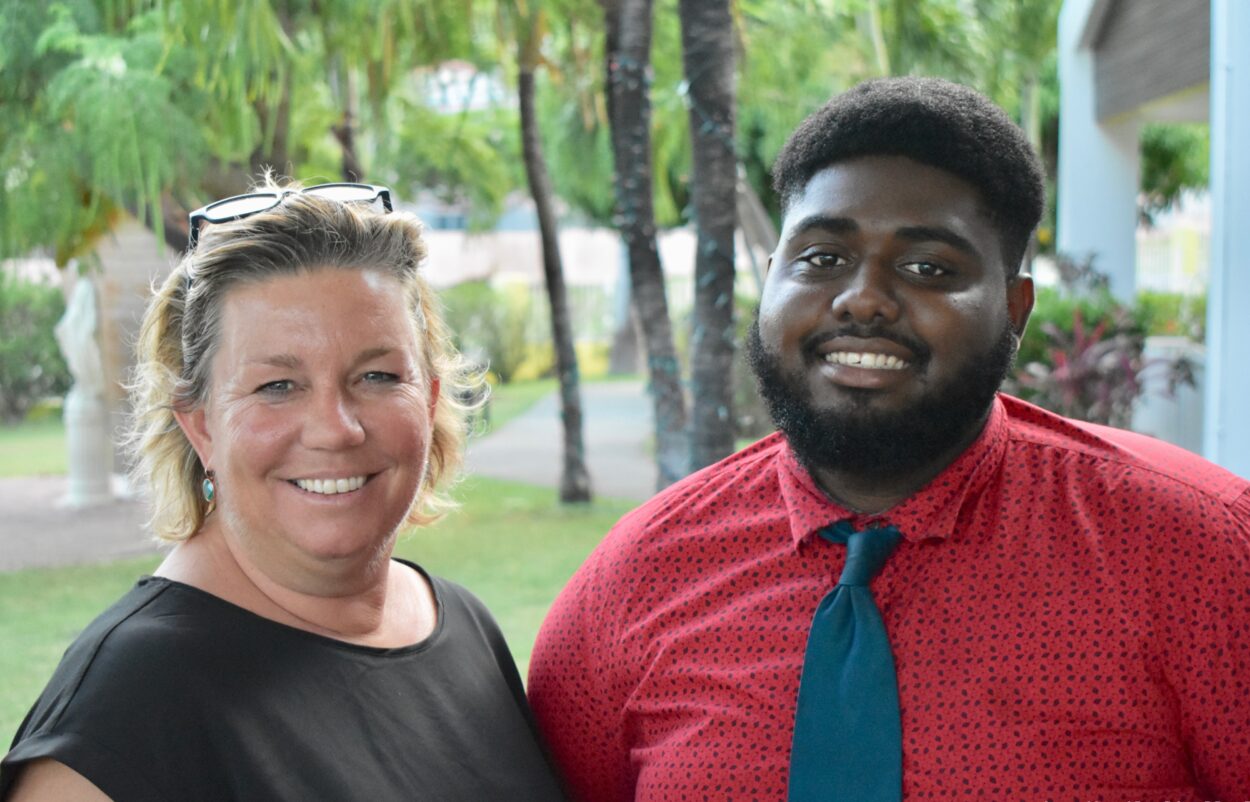Support, consistency and understanding. That is what children in foster care need most, says James Brooks, who grew up in a foster home. His advice: avoid that children have to deal with many different social workers, and give them a structured program that prepares them for their independence.
“My name is James Brooks; I am 20 years old and work at Nagico, an insurance company, as a customer service representative in the medical department. My primary goal is to pursue a psychology degree. My drive for this is to become a social worker. I want to help kids that grow up in foster care, kids like myself.
I was born on the French side of the island. I have brothers and sisters from both sides of the family, but we did not grow up together. The primary reason that I went into the foster care system was because I had an abusive childhood. At times, I must admit, I wasn’t an easy kid, but I was punished beyond the traditional disciplinary actions.
Foster home
I was lucky to have a person close to me, who I could trust, called Bregje. She was like a second mother to me. When I was around thirteen years old, I confided to her that I was being abused. My case was brought to the Court of Guardianship, and based on the circumstances, it was decided I would go into foster care.
I liked the foster home I was placed in well enough, and being an only child, I enjoyed having ‘siblings’ around. The head of the home took a personal interest in us and helped us however she could. I was a moody teenager, so I wouldn’t say I was exactly happy. I remember threatening to pack my bags and leave a few times – but never did.
Someone on your side
The reason why I want to become a social worker is that I do feel that I lacked support from a social worker. I know they are understaffed and overwhelmed, but this meant that I would only see my social worker if I was in trouble. I had multiple social workers during my five years in foster care. I do not think that should be the relationship a social worker has with children under their supervision.
“I was lucky that I had a few people to rely on, butt his was not the case for everyone else in the home”
I was lucky that I had a few people to rely on, but this was not the case for everyone else in the home. When you don’t have your parents or a guardian to rely on, I think it is so important to feel supported by someone who is reliable and on your side. As a social worker, I would try to build a relationship with the children I am assigned to and show them I am someone they can trust.
Trust issues
The problem in not having persons in your life who are reliable, is that it can reinforce the trust issues that foster children often already have. Because people have let you down, and bad things seem to always happen, you don’t believe that good things will happen to you. I have experienced moments when I opted to sabotage a good situation, because I really thought I would be let down eventually anyway. At least if I sabotaged it myself, I was prepared for the disappointment. Self-sabotage is a common thing amongst foster kids. At times you’d rather hurt yourself, someone else or something, than be hurt again yourself.
Kicked out at eighteen
When I turned eighteen, I was allowed to stay in the home for a couple of months, due to hurricane Irma. Usually, at eighteen, you are ‘kicked out of the system’ and have to fend for yourself. There is no structural help or guidance to help you make this step. Some NGO’s have programs or give aid here and there, but nothing that is guaranteed or year-round.
Bregje helped me get a job and save some money before I turned eighteen, so within three months, I found a small apartment and had work to support myself. I am the exception to the rule though. I’d say that most of the boys end up returning to harmful situations and habits, while the girls end up in a financially dependent relationship. They often have few opportunities for future growth, and are at higher risk to end up in an abusive relationship.
Ideally foster kids should have a structured program that prepares them for independence, both in their personal and work life”
Support
Ideally, foster kids should have a structured program that prepares them for independence, living alone and work. This support should not just suddenly stop when they turn eighteen, but give them some time and help to safely stand on their own two feet. For example, you need to often pay two months’ rent as a down payment, so you need to have some money saved before you can live on your own. Support, consistency and understanding – I think those are most important to keep in mind when you consider how to improve the foster-care system on Sint Maarten.”



